Overview
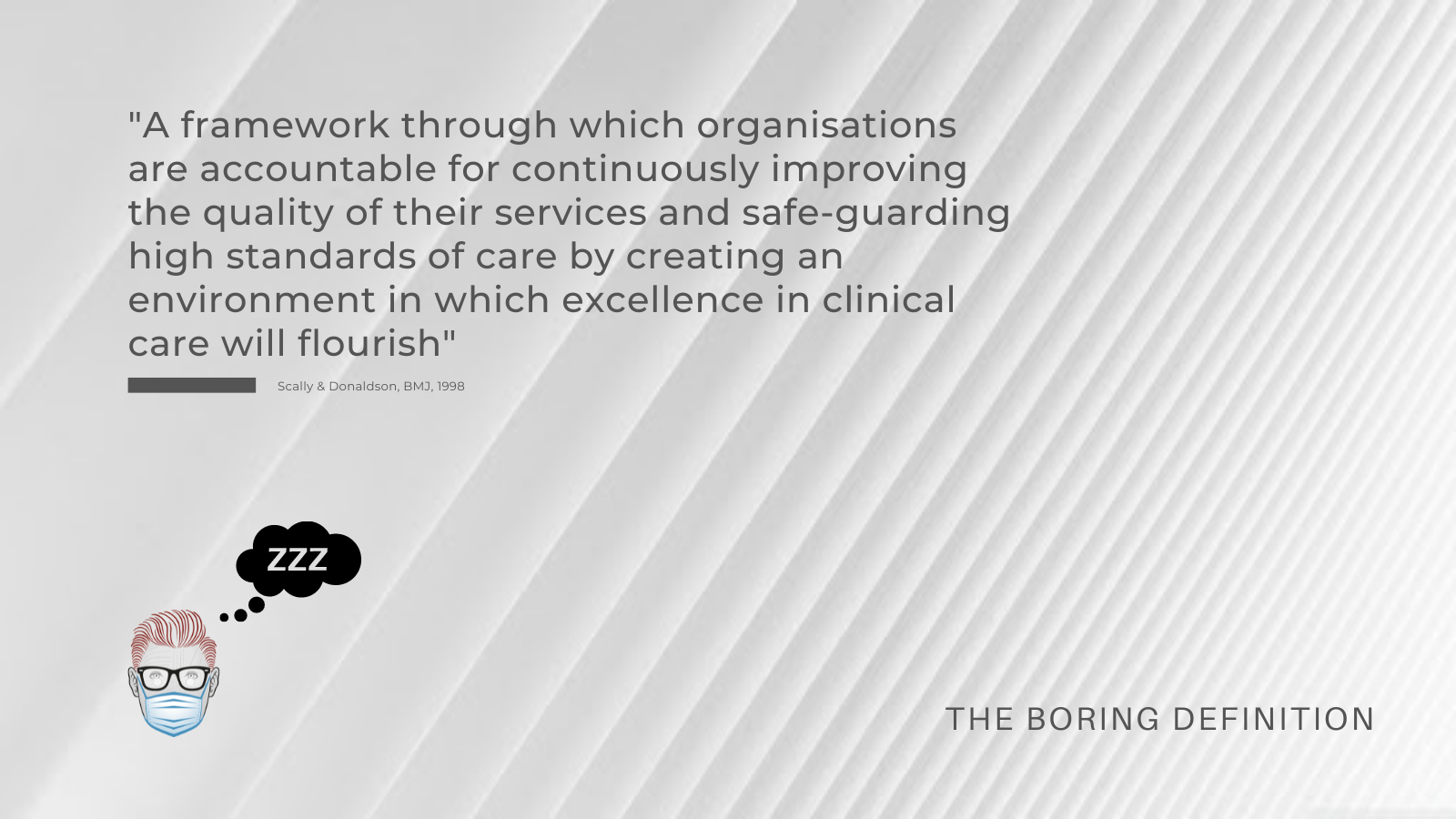
To be able to answer questions about clinical governance well, you need to understand its origins, purpose, and development since its introduction. This can be explained in the infographic below.
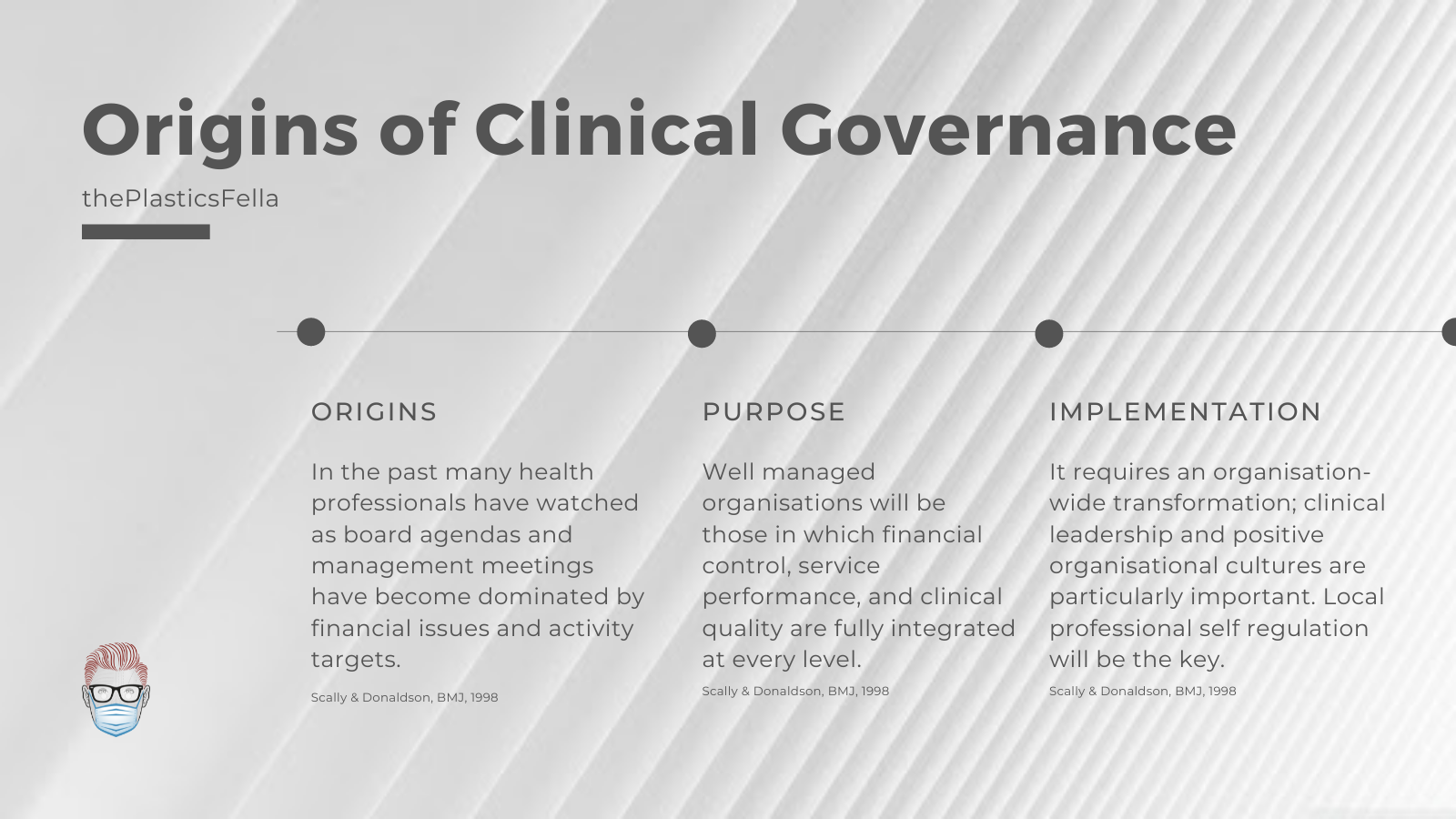
7 Pillars
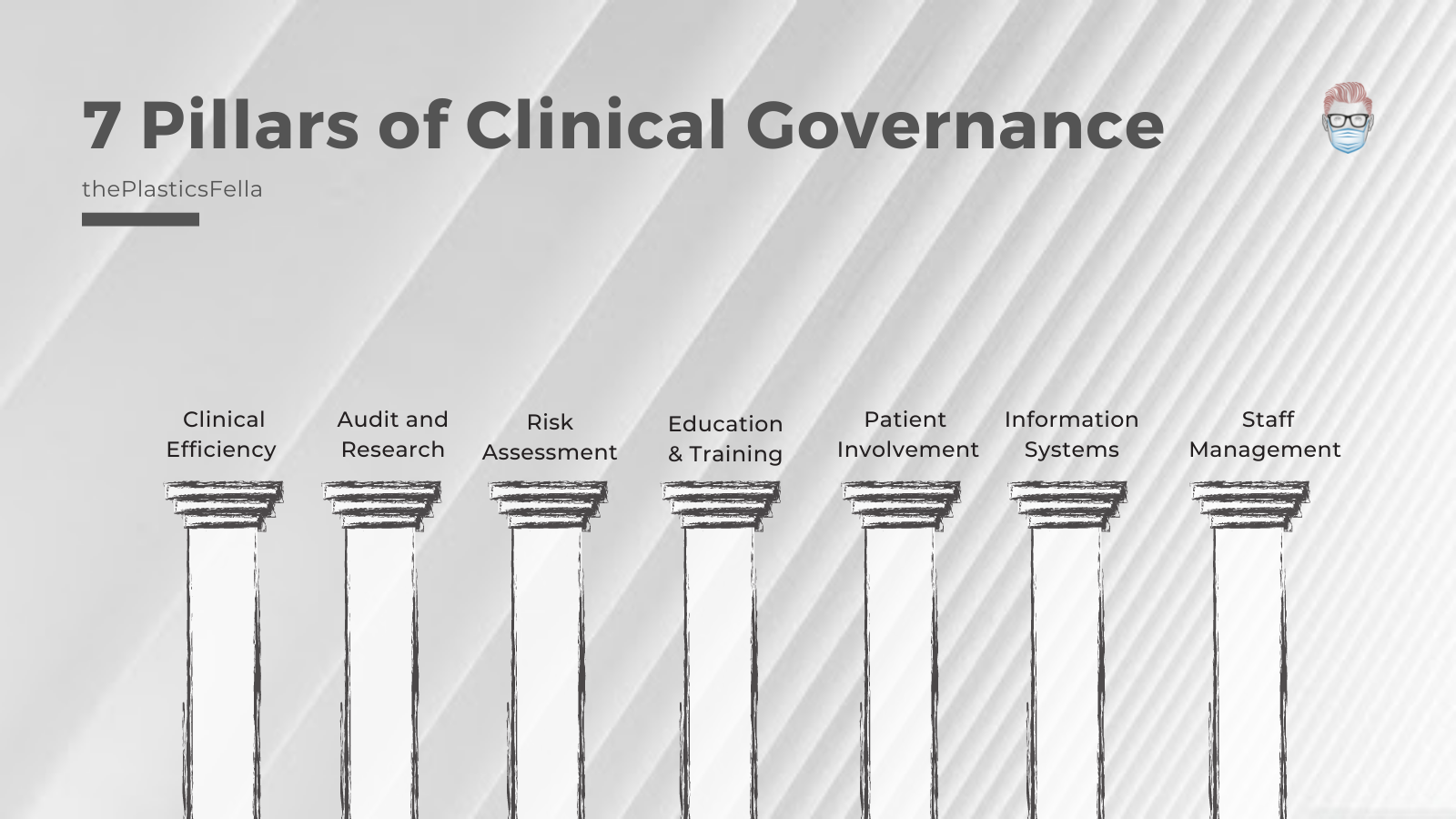
You would not need to recite these 7 pillars in your interview. Your goal is to be fluent in 3 pillars relevant to both you and plastic surgery. You should be aware of the remaining 4 pillars and be able to briefly discuss them if pushed.
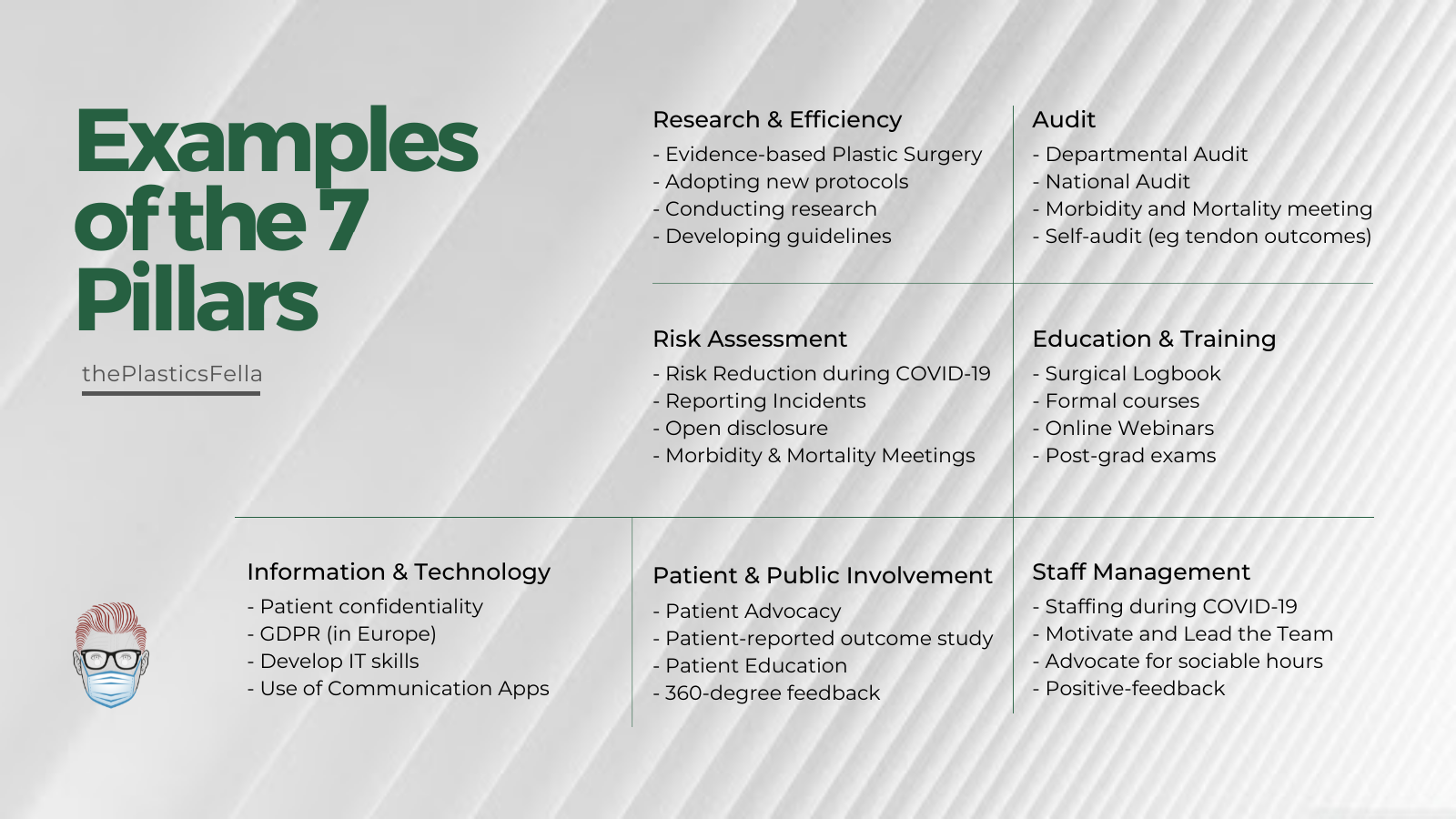
P'Fella recommends being fluent in 3 pillars of clinical governance. The three recommendations are clinical effectiveness & research, audit, and education & training. They are most relevant to Plastic Surgery and also allow you to overlap with other commonly asked questions (research, audit, and courses).
When you think about it, overlapping questions in clinical efficiency, which in turn is a form of governance *mind blown*.
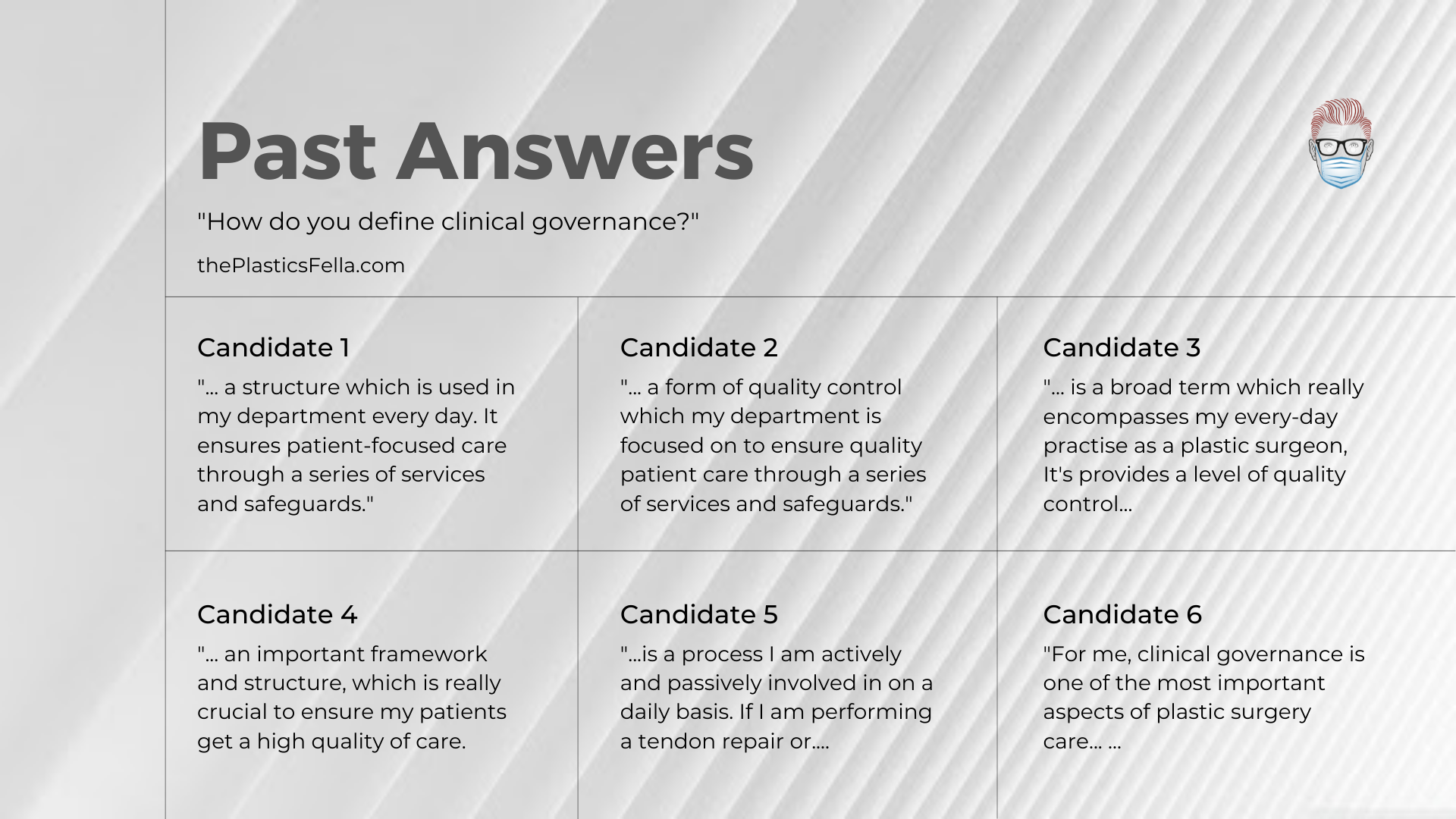
Alternative Questions
Generally speaking, the "clinical governance questions" are not curveballs. They are very straightforward and boring (a little bit like the topic itself). Nonetheless, it's really important to be able to identify other potential questions.
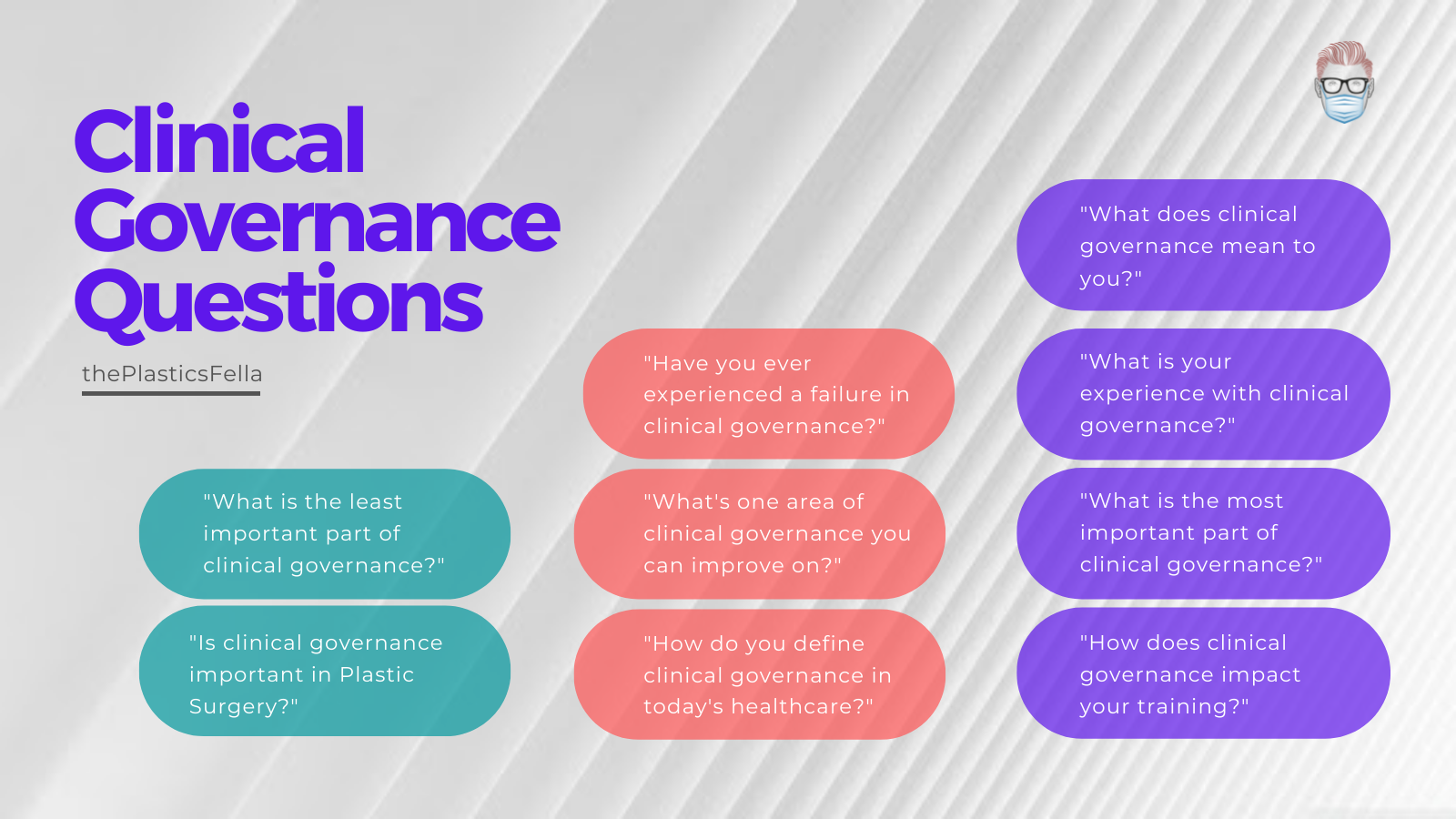
Those questions above as past Plastic Surgery interview questions. When you think about it, they are all asking the same thing (to a certain degree). It's a technique and skill to be able to recognise the purpose of the question, regardless of the way it is asked. This skill is developed in more detail in the next lesson.
Mock Interview
Mock Answer 1
Clinical governance, for me, is a framework that forms the focus of my current practice and training in plastic surgery. Traditionally, there are 7 pillars to clinical governance. There are 3 aspects that are particularly relevant to both me and my team.
Firstly, clinical effectiveness through research and audit is center-stage in my training. I am proud to practice evidence-based medicine and translate my research into clinical practice.
Secondly, training and education play an active role in my training. From the beginning of the year, I set out a personal development plan which I am happy to say I achieved. This included performing 15 flexor tendons and 20 extensor tendons, for example. This clinical skill was augmented by my frequent attendance at webinars, online courses, and reading ThePlasticsFella weekly newsletter (thePlasticsPaper)
Finally, risk management is incredibly important to my team's patient care. For example, I run the monthly M&M meeting and often advocate for my patients.
In the future, and if I am successful in my interview today, I feel other pillars, such as staff management will become more relevant to me, my team, and my patients.
Mock Answer 2
Clinical governance is the structure within which we all work on a daily basis in order to provide the best possible standard of care for our patients, but personally, I feel that the most relevant aspects to my practice are education, risk management, and audit.
Through the COVID pandemic, I have tried to make the most of educational opportunities by branching out into less traditional forms of learning such as online webinars in order to keep my knowledge base up to date and have managed to attend a microsurgery and hand fracture course in between lockdowns.
With regards to passing on knowledge, I am keen to teach, with a background as an anatomy demonstrator, and am currently a Trainee Lead.
Risk management is encountered constantly and subtly, from the WHO checklist to safety netting patients.
Finally, I am an active participant in my department's audit process. I have recently closed an audit loop looking at trauma waiting times to theatre and presented it at the local meeting, and am planning to close the loop on a further service evaluation on virtual follow up for skin cancer in order to ensure that the best possible standards are maintained in the department.
Mock Answer 3
Clinical governance is a framework and structure by which organizations and individuals are accountable for the clinical care that they provide and develops a culture of constant quality improvement aiming for the best possible patient care and outcomes, as well as the best possible experience and outcomes for staff and for the institution itself.
It traditionally comprises seven pillars of which I feel three are most relevant to me at this stage of my career. These are clinical effectiveness and research, audit and teaching and training. With regards research - I have been actively involved in research throughout my training, notably I have 14 publications, and have been recently involved in setting up, protocol writing and obtaining ethics committee approval for a randomised control trial. I also try to practice evidence based surgery as much as possible.
With regards audit, I am actively involved in audit and quality improvement projects in my department, I have completed 6 audits in the last few years of which 5 I designed and lead and completed the audit cycle.
Additionally I have published the results of one audit and presented another at a national conference. I am currently involved in an audit of efficiency in the trauma service and compliance with national standards.
With regards teaching and education, I am heavily involved in teaching junior colleagues and medical students. I have a formal teaching role where I prepare the final year students for their examinations and for clinical practice.
I am also focussed on my own training and development, I not only strive to attend educationcal courses and webinars related to my clinical work and skills e.g. micro, burns etc but also to other areas of my practice e.g. leadership and teaching.


